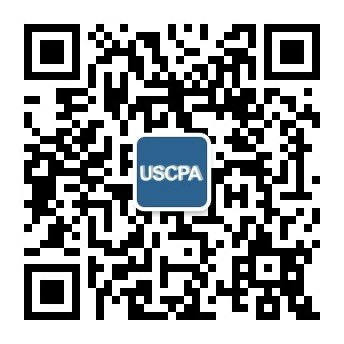

1、凡本网站注明“来源高顿教育”或“来源高顿网校”或“来源高顿”,的所有作品,均为本网站合法拥有版权的作品,未经本网站授权,任何媒体、网站、个人不得转载、链接、转帖或以其他方式使用。
2、经本网站合法授权的,应在授权范围内使用,且使用时必须注明“来源高顿网校”或“来源高顿”,并不得对作品中出现的“高顿”字样进行删减、替换等。违反上述声明者,本网站将依法追究其法律责任。
3、本网站的部分资料转载自互联网,均尽力标明作者和出处。本网站转载的目的在于传递更多信息,并不意味着赞同其观点或证实其描述,本网站不对其真实性负责。
4、如您认为本网站刊载作品涉及版权等问题,请与本网站联系(邮箱fawu@gaodun.com,电话:021-31587497),本网站核实确认后会尽快予以处理。
AICPA 证书指的是由美国注册会计师协会旗下创立的专业资格认证,是在国际财会领域具有很高的含金量以及影响力的证书,具有一证换多证的能力。AICPA考...
2022-08-01美国注册会计师证书 USCPA ,是国际财会领域的三大黄金认证之一,每年报考USCPA证书考试的人数都超过十万人,目前已经有超过66万人拿到了USCPA证书执照。...
2022-07-21AICPA 证书是目前国际财会领域中认可度、知名度和美誉度都很高的黄金证书之一,AICPA持证人在美国享有很高的社会地位,具有很好的社会形象。AICPA是美国...
2022-07-05USCPA(美国注册会计师)考试共有四门科目:AUD(审计)、FAR(财务会计与报告)、REG(法规)、BEC(商业环境)。据说不完全统计USCPA学员平均通过周期一...
2022-05-19在国内,美国注册会计师考试通常被称为AICPA考试,或者USCPA考试。拥有USCPA证书是很多财会人员的梦想与追求。大家都非常想通过USCPA考试,但是有的同学...
2022-05-19如今,许多国际性大企业都认为USCPA证书是专业人士升职、加薪的硬性条件之一。对于刚开始步入职场的人来说,这也是一个提高自身竞争力的筹码。对于...
2022-05-06有很多财会人考AICPA证书都是为了加薪、升职;可能无法明白AICPA的意义。但是事实上,只有通过了美国CPA之后,你才会真正明白,原来它能带给你的,并不...
2018-07-09Louis and Sandy Roman were married with two children, Eddie, age 13, and Nancy, age 20.On July 7, 2012, Louis died.Nancy is a full-time student at the state university.The Romans own their own home and...
2017-04-172016年*9季度USCPA考试备考也进入到了冲刺阶段,考生们在复习时一定要多做练习熟悉题型以及适应机考。高顿网校USCPA精品题库,包含历年真题,模拟试题等...
2017-04-17距离2016年USCPA*9季度考试窗口开放还有20天,考生们复习的如何了呢?USCPA考试是由美国注册会计师协会AICPA所组织的会计师考试,每年全球都有众多考生报...
2017-01-0263题E选项为何不选啊!持有公司发行股份5%前五名股东单位任职人员不能担任,10%已经大于5%不是应该能担任吗?如果不能
资本公积的计算过程不理解
B为什么不对呢
老师:可以分别和我说一下: 1.非货币性资产交换:双方的入账价值和差额怎么确认吗 2.债务重组的:双方入账价值和差额分别怎么确认 3.长期股权投资:初始投资成本,初始入账价值 这几个概念经常弄晕
77题C选项不是应该1%,为什么C正确
63题E选项为何不选啊!持有公司发行股份5%前五名股东单位任职人员不能担任,10%已经大于5%不是应该能担任吗?如果不能
资本公积的计算过程不理解
B为什么不对呢
老师:可以分别和我说一下: 1.非货币性资产交换:双方的入账价值和差额怎么确认吗 2.债务重组的:双方入账价值和差额分别怎么确认 3.长期股权投资:初始投资成本,初始入账价值 这几个概念经常弄晕
77题C选项不是应该1%,为什么C正确
美国注册会计师证书 USCPA ,是国际财会领域的三大黄金认证之一,每年报考USCPA证书考试的人数都超过十万人,目前已经有超过66万人拿到了USCPA证书执照。对于已经参加USCPA考试的考生来说,可能会比较关心以下问题:USCPA考试各科题型有哪些?USCPA各科考试有什么特点?接下来就来看看问题的解答吧。 .........
2022-07-21USCPA(美国注册会计师)考试共有四门科目:AUD(审计)、FAR(财务会计与报告)、REG(法规)、BEC(商业环境)。据说不完全统计USCPA学员平均通过周期一年左右,也有三个月通过全科考试,下面小编就四门科目考点分析一下:...
2022-05-19在国内,美国注册会计师考试通常被称为AICPA考试,或者USCPA考试。拥有USCPA证书是很多财会人员的梦想与追求。大家都非常想通过USCPA考试,但是有的同学担心自己不能考过,就放弃了报考USCPA,那USCPA考试真的很难吗?一起来和小编了解下考试的题型吧!...
2022-05-19如今,许多国际性大企业都认为USCPA证书是专业人士升职、加薪的硬性条件之一。对于刚开始步入职场的人来说,这也是一个提高自身竞争力的筹码。对于报考USCPA的小伙伴来说,可能存在这样的疑问:USCPA考试题型有哪些?有简答题吗?那就让小编来告诉你吧!...
2022-05-062016年*9季度USCPA考试备考也进入到了冲刺阶段,考生们在复习时一定要多做练习熟悉题型以及适应机考。高顿网校USCPA精品题库,包含历年真题,模拟试题等题型,题题结合考试大纲贴近考试考点。电脑上做题更适合实际的机考考试!接下来高顿网校小编从考生常见易错题中找出了一些题目,供大家练习。.........
2017-04-17Identify the section of professional standards that describe how Victor should account for the receipt of dividends on its trading securities. Enter your response in the answer fields below. Guidance on correctly structuring your response appears above and below the answer fields.Type the topic here. Correctly formatted FASB ASC topics are 3 digits. FASB ASCAU-CPCAOBATARETBLVSCSQCPRTSPFPCPEFASB AS.........
2015-11-23Situation Technology Holdings, Inc. is a large company with a diverse set of subsidiaries.The accounting system has aggregated the following information regarding segments of the company: Division Unaffiliated revenue Intersegment revenue Total revenue Operating profit (loss) Segment assets Mining $ 50 $ 0 $ 50 $ 10 $1,200 Aerospace 120 30 150 30 2,100 Agriculture 170 10 180 (12) 500 Telecommunica.........
2015-11-231.AUD Accountants standard report on a compilation of a projection should not include a statement that A. There will usually be differences between the forecasted and actual results. B. The compilation of a projection is limited in scope. C. The accountant has no responsibility to update the report for future events and circumstances. D. The hypothetical assumptions used in the projection are reas.........
2015-11-19USCPA备考,一定要结合书本知识多做练习,每天巩固一点点,熟练掌握知识点。 1.AUD Which of the following statements concerning an auditors communication of significant deficiencies identified during the audit of a nonissuer is correct? A. Suggestions concerning administration efficiencies and business strategies should not be communicated in the same report with signifi.........
2015-11-18USCPA中的SIM题型比较难,并且之后所占比例增加,重要性越来越强。考生们需要多加练习,熟悉题型,在考试时回答的更加从容。下面跟着高顿网校USCPA小编一起看看吧, On January 2, Year 1, Golden Corporation sold equipment to Silver Manufacturing for cash and immediately leased it back for 9 years. Golden uses US GAAP. The cash paid was equal.........
2015-11-181.AUD In verifying the amount of goodwill recorded by a client, the most convincing evidence which an auditor can obtain is by comparing the recorded value of assets acquired with the A. Sellers book value as evidenced by financial statements. B. Appraised value as evidenced by independent appraisals. C. Insured value as evidenced by insurance policies. D. Assessed value as evidenced by tax bills..........
2015-11-17Your firm has become aware of the following situations relating to five of its clients. Use the following possibilities to indicate what type of opinions are appropriate in the circumstances (assume all are material). Opinion Types A. Standard unqualified. B. Unqualified with a matter. C. Qualified. D. Adverse. E. Disclaimer. F. Either qualified or adverse. G. Either qualified or disclaimer. H. Ei.........
2015-11-17USCPA考试中的SIM题其实并没有考生想象的那样难,许多填空是有下拉选项的。考生们平时多加练习,考场上一定能够冷静作答。 You and your staff have completed an audit of a non-issuer for the calendar year ended December 31, year 2. The audit report date of the financial statement was March 11, year 3, and on March 26, year 3, the client issued the financi.........
2015-11-16高顿网校USCPA小编汇总了一些考生易错题和难题,供广大考生练习! 1.AUD In order to efficiently establish the correctness of the accounts payable cutoff, an auditor will be most likely to A. Compare cutoff reports with purchase orders. B. Coordinate mailing of confirmations with cutoff tests. C. Coordinate cutoff tests with physical inventory observation. D. Compare vendors .........
2015-11-12应对USCPA中的BEC 写作题,找准关键词,搭好框架很重要!平时复习,多看一些例题,适当背一背句子,很有效果。跟着高顿网校USCPA小编来看看吧! Easton Manufacturing Company is in a very competitive industry.The CFO of Easton, Karen Wu, is considering implementing an activity based costing system for the company.Draft a memorandum to Karen explainin.........
2015-11-12